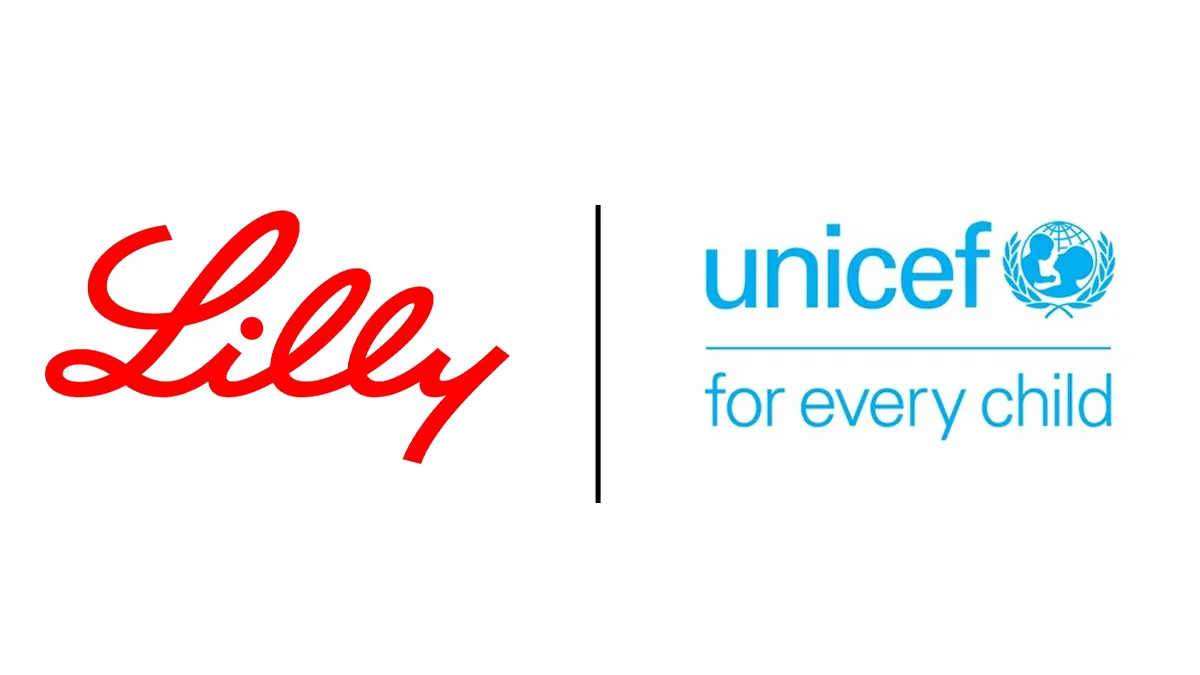Geneva- During the World Health Assembly, Eli Lilly and Company announced it will donate $6.5 million to the United States Fund for UNICEF to expand UNICEF’s work to improve the health outcomes of millions of children and youth at risk of noncommunicable diseases (NCDs) living in resource-limited settings in India. This will bring the company’s total commitment since 2022 to more than $20 million.
With this additional funding, UNICEF will seek to improve efforts to address NCD risk factors, strengthen health systems, enhance the ability of health workers to care for people and support millions of children and their families challenged by diseases like type 1 diabetes, respiratory illnesses, rheumatic and congenital heart disease, and sickle cell disease in resource-limited areas in India.
“UNICEF will work with governments and partners to strengthen health systems to effectively manage NCDs in children and young people. This will help integrate efforts into maternal, newborn, and child health programs, emphasizing prevention and management of childhood NCDs,” says Luigi D’Aquino, chief of health, UNICEF India.
Also Read: Lilly Statement on FDA Advisory Committee Meeting on Donanemab
Noncommunicable diseases place a significant burden on economies while being closely linked to poverty, poor social and economic development, and other inequities. This burden is disproportionately felt by low-income countries, communities, and the most vulnerable people, including children and adolescents. Childhood NCDs can have substantial, lifelong implications for children and their families, including disabilities, chronic pain and reduced quality of life.
According to the World Health Organization’s NCD database, in 2019, NCDs accounted for 66% of all deaths in India, 22% of which were premature. Average life expectancy is 70.79 years in India, slightly less than the world average of 73.40 years. Seventy percent of the preventable adult deaths from NCDs are linked to risk factors that start in adolescence, providing a key opportunity for prevention.
“UNICEF and Lilly share a similar goal – to make life better for millions of people around the world,” said Lilly’s Head of Social Impact, Cynthia Cardona. “These efforts are critical to working towards changing the global landscape of NCDs and improving health outcomes for children and adolescents living in resource-limited areas in India.”
In 2022, UNICEF launched an initiative in Bangladesh, Malawi, Nepal, the Philippines and Zimbabwe with support from Lilly’s $14.4 million contribution to the United States Fund for UNICEF, enabling it to focus on NCD prevention, detection, treatment and support in these countries. Since then, UNICEF has screened hundreds of children for NCDs, trained more than 2,000 health workers, and reached more than 350,000 families with awareness messages on NCD prevention.
UNICEF aims to improve health outcomes for millions of children and adolescents living in resource-limited areas in India by 2030, working towards ensuring healthy lives and promoting well-being for all, which is in line with the United Nations Sustainable Development Goals.
Lilly’s support aligns with its Lilly 30×30 initiative to improve access to quality health care for 30 million people in resource-limited settings annually by 2030.




